 Clarification of COPE advice to editors on geopolitical intrusions on editorial decisions
Clarification of COPE advice to editors on geopolitical intrusions on editorial decisions
There has been much discussion recently on government, specifically US government, sanctions against Iran and the potential effect on Iranian researchers. Some publishers have cautioned editors and reviewers about handling papers from Iran. (See the BMJ news item highlighted above, which followed an earlier report in Science.)
COPE has discussed the issue of geopolitical intrusion into editorial decision making on two occasions over the past year, most recently at the June Council meeting. We agreed to clarify COPE’s position on this by adding the following clause, that is drawn from text developed by the World Association of Medical Editors (WAME), to our Code of Conduct for Journal Editors.
"Editorial decisions should not be affected by the origins of the manuscript, including the nationality, ethnicity, political beliefs, race, or religion of the authors. Decisions to edit and publish should not be determined by the policies of governments or other agencies outside of the journal itself."
When the Code is revised we will formally add the new text within the body of the Code; in the meantime this new clause and any subsequent interim amendments will be noted at the bottom of the Code.
COPE support for Alltrials.net
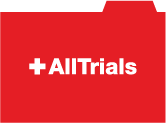 Alltrials.net is a UK group behind a public campaign to call for all trials to be registered and all results reported. COPE has agreed to support this initiative with the following statement: "COPE supports the AllTrials initiative for all trials to be registered and all results reported. Publication ethics is not just about such issues as prevention of plagiarism and managing conflicts of interest, but is, more widely, about ensuring the integrity of the scholarly literature. Registration of trials and full reporting of results is a critical step in counteracting the bias towards positive results in the medical literature."
Alltrials.net is a UK group behind a public campaign to call for all trials to be registered and all results reported. COPE has agreed to support this initiative with the following statement: "COPE supports the AllTrials initiative for all trials to be registered and all results reported. Publication ethics is not just about such issues as prevention of plagiarism and managing conflicts of interest, but is, more widely, about ensuring the integrity of the scholarly literature. Registration of trials and full reporting of results is a critical step in counteracting the bias towards positive results in the medical literature."
eLearning for editors relaunched
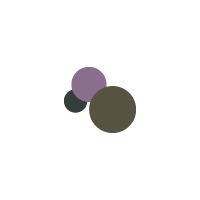 COPE's eLearning course, aimed at new editors, has been relaunched! Easier to access - now directly via the COPE website - and with a streamlined look and feel, it will help new editors gain an understanding of the issues surrounding publication ethics, and give experienced editors the opportunity to further develop their knowledge.
COPE's eLearning course, aimed at new editors, has been relaunched! Easier to access - now directly via the COPE website - and with a streamlined look and feel, it will help new editors gain an understanding of the issues surrounding publication ethics, and give experienced editors the opportunity to further develop their knowledge.
Some behind-the-scenes website work (see below) has also been undertaken that will allow each member journal (or publisher) to create an account on the COPE website for colleagues and staff. This will let everyone track and record their own progress through the course, and receive a named certificate once completed.
New modules have been added. In addition to Introduction to Publication Ethics, Plagiarism, Falsification, Fabrication, we now also have modules on Authorship and Conflict of Interest. Five further modules will be released shortly: Editor Misconduct, Reviewer Misconduct, Redundant Publication, Selective Reporting, and Unethical Research.
We hope you find the course useful and the new functionality easier to use. We are always keen to receive your feedback - please do contact us here with any comments you may have.
Access eLearning here.
Behind the scenes on the COPE website
 Over the past few months, COPE's website suppliers have been rebuilding our member management database. With many new features introduced, the primary reason for this work has been to enable colleaugues and staff of member journals and publishers to have their own personal account on the COPE website. Previously, just one account was attached to an entire journal or publisher. This meant if you accessed the eLearning course, you needed to do so under the main journal or publisher account. The consequences of this were that individual members could not track or record their own progress on a module - it was always listed under the main journal account details. Now each member will be able to log on to the COPE website with their own username details.
Over the past few months, COPE's website suppliers have been rebuilding our member management database. With many new features introduced, the primary reason for this work has been to enable colleaugues and staff of member journals and publishers to have their own personal account on the COPE website. Previously, just one account was attached to an entire journal or publisher. This meant if you accessed the eLearning course, you needed to do so under the main journal or publisher account. The consequences of this were that individual members could not track or record their own progress on a module - it was always listed under the main journal account details. Now each member will be able to log on to the COPE website with their own username details.
If you are the main journal or publisher contact, you will need to create an account for your colleagues which will give them user rights to access the eLearning course as well as other member benefits. This will enable everyone with the relevant permissions to keep a record of their own eLearning progress, as well as receive a certificate with their own name on it. The change will optimize the way in which COPE members interact with the COPE website, and we also hope that, in the future, we will be able to provide a host of other benefits which can be personally tailored to the individual member. More information can be seen here.
If you have any feedback or comments you can let us know here.
 Ethical Guidelines for Peer Reviewers
Ethical Guidelines for Peer Reviewers
Peer review in all its forms plays an important role in ensuring the integrity of the scholarly record. The process depends to a large extent on trust, and requires that everyone involved behaves responsibly and ethically. Peer reviewers play a central and critical part in the peer-review process, but too often come to the role without any guidance and may be unaware of their ethical obligations. COPE has produced some guidelines which set out the basic principles and standards to which all peer reviewers should adhere during the peer-review process in research publication. The aim has been to make them generic so that they can be applied across disciplines
Dr Irene Hames, COPE Council member and main author of the guidelines, launched the guidelines at the 2013 European Seminar. Her presentation on the background, issues and evolution of the guidelines can be seen here. One of the main issues she discusses is why the guidelines are needed. She references a 2009 Sense About Science study (Sense About Science, 2009; Mulligan et al., 2013) which showed 56% of researchers felt there is a lack of guidance on how to review papers and 68% thought formal training would improve the quality of reviews. (Hames, I. COPE's new Ethical Guidelines for Peer Reviewers: background, issues, and evolution; EON; May 2013, Volume 6, Issue 4). Hames goes on to highlight recent examples of reviewer misconduct where authors 'faked' reviewers they suggested to the journal they were submitting to. This was by either providing false identities and emails or creating fake email accounts for real people which they had access to. One such case was brought before COPE at our Forum. The discussion can be listened to here, or viewed here.
What next for the guidelines? "It is hoped that the guidelines will be widely disseminated and used by a number of communities: publishers in training and helping their editors, journals and editors in guiding their reviewers, and universities and research institutions in training their students and researchers. The guidelines are also very much a “living” document and will be revised at future stages in response to feedback received." says Hames.
Download the Ethical Guidelines for Peer Reviewers here (PDF 445kb) ©2013 COPE.
These guidelines are available to use under the Creative Commons Attribution-NonCommercial-NoDerivs license http://creativecommons.org/licenses/by-nc-nd/3.0/. A press release on the launch is also available (download PDF 90 kb).
Responding to anonymous whistle blowers
COPE published a discussion document on 'responding to anonymous whistle blowers' after receiving lots of requests from our members on the best way to manage this kind of communication. Dr Virginia Barbour, Chair of COPE, led the production of the document and explains the backgound here, "Anonymous whistle blowing is not a new phenomenon. There are many legitimate reasons for individuals to wish to remain anonymous, including fear of a loss of position (especially for more junior participants in a research or clinical project) should their name come to light. More recently, however, a new phenomenon has arisen – that of individuals using the anonymity provided by the web to provide tip offs on a range of issues relating to publication ethics." (Barbour, V. Responding to Anonymous Whistle Blowers. COPE Discussion Document; January 2013). The discussion document is written in a question and answer style, based on the questions we have received from members and our advice. One of the most common questions we receive? "Should these emails be taken seriously?" Our advice is always, generally yes - if detailed and specific evidence is provided.
We are always keen to receive comments on our discussion documents (we have also published a discussion document on plagiarism and further ones are in the pipeline on authorship and corrections). Please do contact us here if you have any comments.
Download the Responding to Anonymous Whistle Blowers discussion document here
The Plagiarism discussion document can also be downloaded here
 COPE Vice-Chair, Charlotte Haug, receives top CSE award
COPE Vice-Chair, Charlotte Haug, receives top CSE award
The Council of Science Editors (CSE) awarded the CSE Award for Meritorious Achievement 2013 to COPE Vice-Chair, Charlotte Haug, for her work in COPE. The purposes of this award are to highlight the goals of CSE, particularly the efforts made to improve scientific communication through the pursuit of high standards in all activities connected with editing, and to honour those who have made significant contributions toward this goal, as well as to express appreciation for such contributions. Charlotte received her award at the CSE Annual Meeting held in May this year in Montreal, Canada.
Thank you to CSE for permission to reuse the photographs
COPE Seminars
2013 Asia-Pacific Seminar
 On 15th February 2013, COPE hosted its second Asia-Pacific Seminar in Melbourne, Australia. The theme was Correcting the Literature and featured presentations from Helen McLean, legal counsel for John Wiley & Sons, Australia; John Loadsman, Editor, Anaesthesia & Intensive Care; Paul Taylor & Daniel Barr, Office for Research Ethics and Integrity at the University of Melbourne; Geoffrey Bilder, CrossRef; and Suzanne Morris, Research Integrity Officer, Office of the Deputy Vice-Chancellor (Research), University of Queensland.
On 15th February 2013, COPE hosted its second Asia-Pacific Seminar in Melbourne, Australia. The theme was Correcting the Literature and featured presentations from Helen McLean, legal counsel for John Wiley & Sons, Australia; John Loadsman, Editor, Anaesthesia & Intensive Care; Paul Taylor & Daniel Barr, Office for Research Ethics and Integrity at the University of Melbourne; Geoffrey Bilder, CrossRef; and Suzanne Morris, Research Integrity Officer, Office of the Deputy Vice-Chancellor (Research), University of Queensland.
A report from the meeting can be read here.
All presentations and posters from the meeting are available to download here.
2013 COPE European Seminar
 22nd March saw the annual European Seminar held in London, UK. This year's theme was on 'Publication ethics from student to professional' and featured presentations from Professor Pieter Drenth, Professor Emeritus at VU University of Amsterdam; Dr Irene Hames, COPE Council member and former managing editor of The Plant Journal; and Gill Rowell, Academic Advisor at Turnitin.
22nd March saw the annual European Seminar held in London, UK. This year's theme was on 'Publication ethics from student to professional' and featured presentations from Professor Pieter Drenth, Professor Emeritus at VU University of Amsterdam; Dr Irene Hames, COPE Council member and former managing editor of The Plant Journal; and Gill Rowell, Academic Advisor at Turnitin.
 COPE awarded a scholarship to Dr Fatema Jawad, Editor-in-Chief of the Journal of Pakistan Medical Association to attend the European seminar. Dr Jawad says in her report: "Editors have a difficult role to play but with my personal experience, I can say that I have had a tremendous amount of support and help from the COPE Council members in solving my problems. The Forum is an excellent opportunity to present cases and gain the support to take a correct decision". Dr Jawad's full report can be read here.
COPE awarded a scholarship to Dr Fatema Jawad, Editor-in-Chief of the Journal of Pakistan Medical Association to attend the European seminar. Dr Jawad says in her report: "Editors have a difficult role to play but with my personal experience, I can say that I have had a tremendous amount of support and help from the COPE Council members in solving my problems. The Forum is an excellent opportunity to present cases and gain the support to take a correct decision". Dr Jawad's full report can be read here.
A report by one of the delegates who attended the seminar from BioMed Central can be read here.
All presentations and posters from the meeting are available to download here.
2013 APAME/JAMJE Seminar
COPE recently held two 90 minute sessions during the annual congress of the Asia Pacific Association of Medical Journal Editors (APAME) in association with the Japanese Association of Medical Journal Editors (JAMJE) at the Japan Medical Association in Tokyo on 3 August 2013. The themes included responsible conduct of research, digital publishing trends and publication ethics.
The COPE sessions were led by COPE Treasurer, Chris Graf, with Charlotte Haug, COPE Vice-Chair making an apearance by video. Around 70 editors attended the sessions. There were some interesting presentations from expert speakers on issues as varied as the challenges around implementing CrossCheck to a campaign on preventing duplicate publication. A full report of the meeting can be seen here.
Previous Seminars
 All seminars from 2010 on are listed on the COPE website with a copy of the presentations to download and, in some cases, an audio or video recording of the presentation. Do take the time to listen or view when you can. They make for interesting and useful listening and watching! All audio and video files can be found here.
All seminars from 2010 on are listed on the COPE website with a copy of the presentations to download and, in some cases, an audio or video recording of the presentation. Do take the time to listen or view when you can. They make for interesting and useful listening and watching! All audio and video files can be found here.
New COPE Council members and expanding our network
New COPE Council members
Earlier this year, COPE welcomed four new members to Council and we are looking forward to working with them over the next 3 years.
Mohammad Abdollahi is a professor at Tehran University of Medical Sciences.
Deborah Poff is President and Vice-Chancellor at Brandon University in Manitoba. She is the co-founder and Editor of the Journal of Business Ethics and Editor-in-Chief of the Journal of Academic Ethics.
Michael Wise is a co-founder and coeditor-in-chief of Microbial Informatics and Experimentation.
Adrian Ziderman is Sir Isaac Wolfson Professor Emeritus at Bar-Ilan University, Israel and Editor-in-Chief of the inter-disciplinary International Journal of Manpower.




Full details of the new and all other Council members can be found here.
COPE Alumni
COPE has benefited from many experienced editors and other publishing professionals who have served on its Council, and as officers. The new COPE Alumni group consists of some of its previous Council members who have agreed, on occasion, to continue to represent COPE and speak on its behalf. The COPE Alumni will, when appropriate, be called on to:
- Speak/participate in meetings on behalf of COPE
- Represent COPE on organizations
- Participate in specific Council subcommittees
- Be available to provide feedback on new policies/documents
COPE confidentiality (where required) will be maintained at all times.
The COPE Alumni group can be seen here.
International Advisory Group
To expand COPE internationally, we need to ensure a broad, international focus. This means gaining an understanding of the ethical issues and concerns facing individual countries and regions (as far as practicably possible). COPE has therefore created an International Advisory Group. Consisting of COPE members, the IAG will:
- Represent COPE on organizations in that country
- Promote COPE's activities as well as identify opportunities for COPE to work more closely on ethical issues in that country/region
- Provide country- or region-specific advice to COPE subcommittees, if relevant
- Provide country- or region-specific feedback on new policies/documents
- Participate and provide advice/support on COPE webinars and seminars/meetings that are held in that country/region.
COPE is very excited to work with the IAG members and is looking forward to enriching our resources and the support and advice we can offer.
The members of the IAG can be seen here.
COPE Forum: in person, by webinar, or by chat
COPE is now offering alternative ways of participating in and presenting cases to Forum. In March and September this year, we held our first virtual Forums as part of a pilot. They were extremely successful, barring a few teething problems for some of the attendees (mainly owing to audio issues). The last virtual Forum saw more than 60 members attend from 23 different countries, including Brazil, India, Japan, Malaysia and Nepal. This compares very favourably to the few who are able to physically attend the traditional quarterly Forum. Fatema Jawad, Editor-in-Chief of the Journal of Pakistan Medical Association commented: "it was a wonderful experience participating in the COPE Webinar. I felt I was present in person with all other COPE members. The discussions were good and as usual very helpful suggestions were given for the cases." Consequently, Council has agreed that, while we will now still hold the main Forum quarterly, we will now run them by webinar. We will continually reassess whether this is the optimum way in which to manage the Forum and may consider other options in the future, including reverting back to a physical meeting if appropriate. Please do contact us here if you have participated in a webinar and have any feedback or if you have any advice for future webinars. The next Forum by webinar is scheduled for 5 December 2013 (time to be determined).
At the beginning of August, COPE also piloted an 'eForum'. This is different from the webinar format in that it was conducted via a 'chat room' format on our website. One of our members submitted a case prior to the scheduled eForum. About 5 or 6 Council members were online and discussed the case with the member by text. The format worked very well and we hope to be able to offer this service on a monthly basis to those members who require speedier advice.
All cases, whether presented in person, by webinar, or by eForum will be summarized and posted on the website as usual (seen here). The discussion is also recorded and the audio edited and posted with the case. An example of this can be seen here.
And finally, in another innovation, we are also now dedicating the first 30 minutes of the Forum to a discussion topic. The topics for discussion are suggested by our members and are open for comments prior to the Forum. These are then discussed at the Forum, with the resulting discussion summarized and posted on our website. Topics discussed at previous Forums include: citation manipulation, authorship, text recycling, publishing offensive material, and electronic responses to blogs and journal articles. All discussions can be seen here.

Attending and speaking at meetings
COPE Council members have been busy attending and speaking at various meetings around the globe over the past few months. We have spoken at conferences, seminars and journal events in places such as Aarhus, Bangladesh, Columbia, Lisbon, Memphis, Queensland as well as in the UK. Just a few of these meetings are highlighted below.
ALPSP Training: Publication Ethics: Fraud and Misconduct, March 2013
 The Association of Learned and Professional Society Publishers (ALPSP) approached COPE last year with a view to collaborating on a training course on publication ethics. COPE Council members Mirjam Curno and Zoë Mullan liaised with the organization over the course content and Zoe attended the course and gave a short presentation on COPE—its function, structure, history, and member benefits. Members of both ALPSP and COPE were offered a discount on the cost of the course.
The Association of Learned and Professional Society Publishers (ALPSP) approached COPE last year with a view to collaborating on a training course on publication ethics. COPE Council members Mirjam Curno and Zoë Mullan liaised with the organization over the course content and Zoe attended the course and gave a short presentation on COPE—its function, structure, history, and member benefits. Members of both ALPSP and COPE were offered a discount on the cost of the course.
The course itself was ably tutored by former COPE Chair Liz Wager, together with Donna Neill—a solicitor and legal adviser for Wiley-Blackwell. The course was aimed at editors and publishers with mid-level experience and covered detection of misconduct, how to deal with suspected misconduct, who does what, retractions and corrections, how publishers’ policies and practices can prevent misconduct, and business ethics.
The course was well run, the attendees (around 30) took an active part, and the feedback afterwards was very good. The course will run again in February, 2014, possibly aimed at a higher-level audience, and COPE has requested a bigger role in its development and presentation.
Council of Science Editors (CSE) annual meeting and 3rd World Conference on Research Integrity (WCRI)
 In May, Montreal, Canada, was host to two major conferences on research and publication ethics: the annual meeting of the Council of Science Editors (CSE) and the 3rd World Conference on Research Integrity (WCRI) (part sponsored by COPE). Representatives from COPE, including Charlotte Haug, Vice-Chair of COPE and Liz Wager, ex-Chair of COPE, participated in and helped organize both conferences. In addition, Charlotte and Rosemary Shinkai, COPE Council member, took part in a joint meeting between COPE and ICSU (International Council for Science). A full report of the meeting can be seen here.
In May, Montreal, Canada, was host to two major conferences on research and publication ethics: the annual meeting of the Council of Science Editors (CSE) and the 3rd World Conference on Research Integrity (WCRI) (part sponsored by COPE). Representatives from COPE, including Charlotte Haug, Vice-Chair of COPE and Liz Wager, ex-Chair of COPE, participated in and helped organize both conferences. In addition, Charlotte and Rosemary Shinkai, COPE Council member, took part in a joint meeting between COPE and ICSU (International Council for Science). A full report of the meeting can be seen here.
2013 Beijing International Ethical Seminar of Medical Journal Editors
 COPE Ombudsperson, Suzanne Morris, presented at the International Ethical Seminar of Medical Journal Editors, held in Beijing, China on the 1-2 June. The event was the largest and first formal event held in Mainland China and culminated in the establishment of the Committee on China Medical Journal Publication Ethics (CCMJPE) and their “Declaration of China Medical Journal Editing and Publication Ethics". Suzanne's report of the meeting can be read in full here.
COPE Ombudsperson, Suzanne Morris, presented at the International Ethical Seminar of Medical Journal Editors, held in Beijing, China on the 1-2 June. The event was the largest and first formal event held in Mainland China and culminated in the establishment of the Committee on China Medical Journal Publication Ethics (CCMJPE) and their “Declaration of China Medical Journal Editing and Publication Ethics". Suzanne's report of the meeting can be read in full here.
Thank you to Charley Miao for permission to reuse the images from the 2013 Beijing International Ethical Seminar of Medical Journal Editors
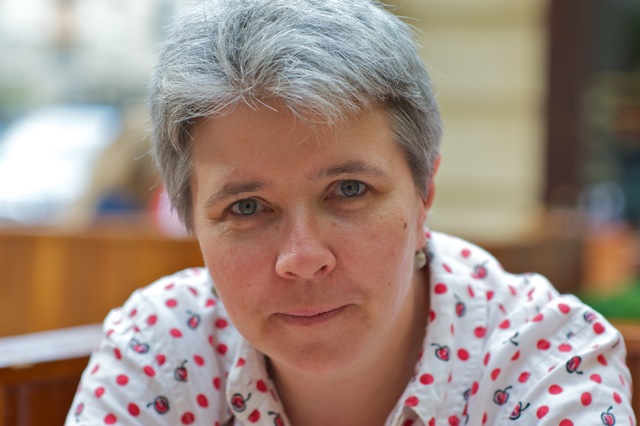 Welcome to the inaugural edition of COPE Digest: Publication ethics in practice. Our aim was for a newsletter that was able to provide a timely resource on publication ethics, in a format that makes it easy to browse and reflect what COPE does best—provide practical support to members. The newsletter will therefore be coming out monthly and we intend it to reflect the dynamic nature of information on the web nowadays with links to content from within and external to COPE. The newsletter has come to life thanks to the inspiration, experience and work of three key members of COPE: Natalie Ridgeway, COPE Operations Manager, Irene Hames, COPE Council member, and Charlotte Haug, COPE Vice-Chair.
Welcome to the inaugural edition of COPE Digest: Publication ethics in practice. Our aim was for a newsletter that was able to provide a timely resource on publication ethics, in a format that makes it easy to browse and reflect what COPE does best—provide practical support to members. The newsletter will therefore be coming out monthly and we intend it to reflect the dynamic nature of information on the web nowadays with links to content from within and external to COPE. The newsletter has come to life thanks to the inspiration, experience and work of three key members of COPE: Natalie Ridgeway, COPE Operations Manager, Irene Hames, COPE Council member, and Charlotte Haug, COPE Vice-Chair. An analysis of national official guidance documents on research integrity in Europe has shown great heterogeneity within and between European countries. For several countries, there was great difficulty in even retrieving their guidelines. Harmonization of the guidance on research integrity in Europe is needed to avoid confusion, and help researchers involved in international research projects.
An analysis of national official guidance documents on research integrity in Europe has shown great heterogeneity within and between European countries. For several countries, there was great difficulty in even retrieving their guidelines. Harmonization of the guidance on research integrity in Europe is needed to avoid confusion, and help researchers involved in international research projects.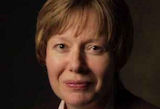
 At the ‘ORI at 20’ conference held in April, three journal editors and publishers outlined how their journals deal with misconduct and ethical issues. A summary is published in the
At the ‘ORI at 20’ conference held in April, three journal editors and publishers outlined how their journals deal with misconduct and ethical issues. A summary is published in the 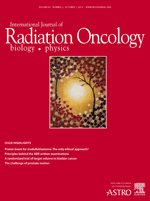
 Grant Steen and colleagues ask whether the increase in retracted scientific publications reflects an increase in publication of flawed articles or an increase in the rate at which flawed articles are recognized and retracted.
Grant Steen and colleagues ask whether the increase in retracted scientific publications reflects an increase in publication of flawed articles or an increase in the rate at which flawed articles are recognized and retracted.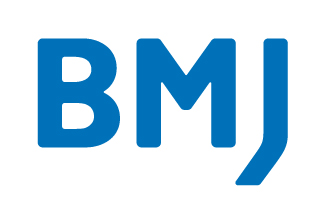 Call for journals to require authors to sign a publication transparency declaration as part of every submission: that the manuscript is an honest, accurate, and transparent account of the study being reported; that no important aspects of the study have been omitted; and that any discrepancies from the study as planned (and, if relevant, registered) have been explained.
Call for journals to require authors to sign a publication transparency declaration as part of every submission: that the manuscript is an honest, accurate, and transparent account of the study being reported; that no important aspects of the study have been omitted; and that any discrepancies from the study as planned (and, if relevant, registered) have been explained. The
The 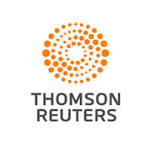 Some editors have been found to be publishing articles containing "hundreds of references to papers in each others’ journals" to increase their Impact Factors.
Some editors have been found to be publishing articles containing "hundreds of references to papers in each others’ journals" to increase their Impact Factors. 
 Alltrials.net
Alltrials.net COPE's
COPE's  Over the past few months, COPE's website suppliers have been rebuilding our member management database. With many new features introduced, the primary reason for this work has been to enable colleaugues and staff of member journals and publishers to have their own personal account on the
Over the past few months, COPE's website suppliers have been rebuilding our member management database. With many new features introduced, the primary reason for this work has been to enable colleaugues and staff of member journals and publishers to have their own personal account on the 

 22nd March saw the annual
22nd March saw the annual  COPE awarded a scholarship to Dr Fatema Jawad, Editor-in-Chief of the
COPE awarded a scholarship to Dr Fatema Jawad, Editor-in-Chief of the All seminars fr
All seminars fr




 The
The In May, Montreal, Canada, was host to two major conferences on research and publication ethics: the annual meeting of the
In May, Montreal, Canada, was host to two major conferences on research and publication ethics: the annual meeting of the  COPE Ombudsperson,
COPE Ombudsperson, 
